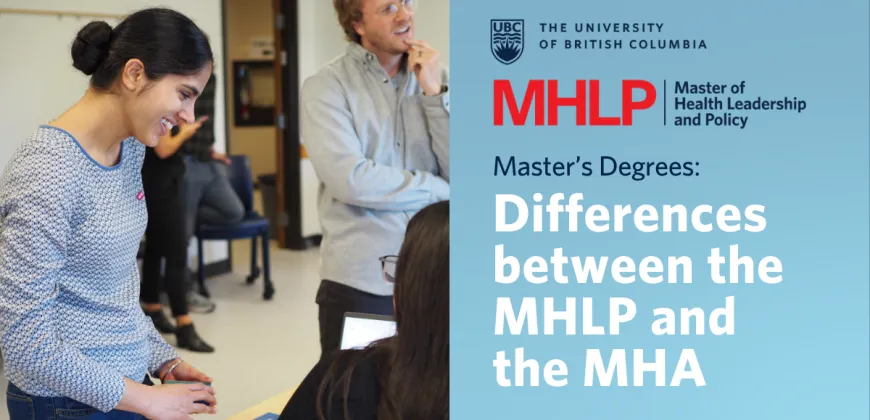Integrating Diverse Perspectives

Great leaders are inclusive: they know how to guide diverse teams and they are able to integrate multiple perspectives when working on complex problems and projects. These perspectives can include both domain-specific issues as well as the concerns of both internal and external stakeholders, from those financing the project to the end-users and everyone in between.
Learning how to create a team culture where people feel confident sharing their expertise and opinions and being able to integrate those perspectives is key to successful leadership. And it’s a skill that students in the Master of Engineering Leadership (MEL) and Master of Health Leadership and Policy (MHLP) practice and develop over the course of their postgraduate degree.
MEL and MHLP students come together for the business and leadership classes that make up approximately half of the curriculum for each program. These interactive discussion-based courses require students to work on numerous collaborative group projects with their peers, who may have backgrounds in engineering, urban planning and architecture, and health care. “There is a real mix within these degrees so that you are learning alongside people from all over the world, from different types of jobs, at different points in their careers,” says Sean Mercer, a 2020 alumni of the MEL in Integrated Water Management program. “I found it very helpful to see new perspectives, better understand my privileges and experiences, and incorporate that into my communication and leadership style going forward.” At a very tangible level, this focus on collaborative group work provides an exceptional opportunity for students to practice how to respectfully consider different perspectives, recognize biases, and identify and nurture the individual strengths that each member brings to a team.
“I’m a hardcore engineer and had not often worked alongside people from outside my area,” says Anupam Yadav, a 2020 graduate of Dependable Software Systems. “Working on group projects in my business classes alongside health-care professionals and engineers from a range of disciplines broadened my perspective and experience,” he says. “There were students from more than 20 countries in my cohort, and that also created a wonderful cultural mix.”
Laura Frisby, a 2018 graduate of the MHLP in Seniors Care, says the program helped expand her point of view and has enabled her to more easily connect with those from outside her field of practice. “Working in groups with people from such a variety of professional backgrounds exposed me to the different ways people think and their differing priorities and concerns,” she says. “I’ve adapted this in my work – making certain, for example, that when I’m speaking with leaders from different disciplines that I present them with the information that’s most relevant to them.” As many MEL and MHLP alumni attest, learning how to effectively be part of a team made up of people from diverse personal and professional backgrounds is a skill that has helped them confidently take on leadership roles where they need to consider multiple viewpoints and meet the needs of diverse stakeholders.
“Our program equips students with the skills needed to lead in diverse, multicultural and unfamiliar settings, with learners joining cohorts of students from across the world and a range of technical disciplines,” says academic director Justin Bull. “Through immersive educational experiences, students receive a crash course in managing in a changing world.”
Read more about how the MEL and MHLP create meaningful opportunities for cross-industry learning and developing skills in group dynamics, teamwork and integrating diverse perspectives.





